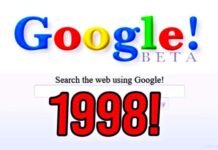Copyright, trademarks, and patents – people often confuse these three terms and believe them to be interchangeable. However, if you dig a bit deeper, you learn that, while all three are legal tools to protect Intellectual Property (IP), each one of them is designed to protect different IP elements.
Patents are designed to protect inventions, trademarks are best for protecting a brand’s unique image, and copyright is perfect for protecting original (and tangible) works of authorship (texts, music, software, advertising copy, video games, and more) from unauthorized copy and distribution.
So, if you’re not sure if you can use copyright to protect your creations, below we will discuss this IP protection tool in a bit more detail. Also, if you want to know more, here are a series of copyright FAQs you should check out.
Copyright as a Method to Protect Creators
The fast spread of the Internet allowed people everywhere easier access to all sorts of content that can be shared and forwarded in an instant. This led to a time when most users would simply copy and share a music piece, an ebook, a video, or download a movie from torrents. Keep in mind, this was a time before streaming services were widely available and apps such as Spotify didn’t exist (even YouTube was in its incipient phase!).
This led to a bunch of lawsuits that led to the closing of some of the most notorious peer-to-peer file sharing platforms of the time. The practice also discouraged users from downloading and sharing content that wasn’t theirs or didn’t have the author’s permission to do so.
As a result, creators in all industries felt a bit more protected as their rights were defended and they could continue to make a living out of their creations. All these couldn’t have been possible without proper copyright laws. Additionally, the increased awareness of the importance of Intellectual Property and the fact that almost anyone has the tools to become a creator nowadays has shifted the public opinion on what’s right and what’s not.
What Can Be Copyrighted
According to the laws of copyright, any original work, in a tangible format, can be copyrighted by its author.
Here are a few examples of works that can be copyrighted:
- Literary Works – besides novels, poems, and the likes, this category also includes articles, advertising copy, speeches, and even computer programs (the code behind the apps, tools, and games we all love so much)
- Dramatic Works – plays, operas, scripts, and the likes
- Musical Works – both the music and the words of a song
- Sound Recordings – different than musical works
- Pictorial, Graphic, and Sculptural Works – sketches, drawings, cartoons, paintings, photographs, slides, wallpapers, and more
- Motion Pictures and audiovisual works in general
- Compilations – the collection of existing materials (not necessarily authored by you) can be copyrighted.
In summary, one can copyright an original artistic or literary creation with the intent to protect it from being distributed without their accord. This includes photos, images, music, and other similar types of content that are readily available on the Internet.
Protect Your Business from Using Copyrighted Materials
It’s only natural to want to protect your business from any litigations and costs this may incur. Luckily, nowadays it’s rather easy to know if a material is protected by copyright or not. Google and other search engines even allow users to refine their search based on whether they want ‘free to use’ content or not.
Moreover, there are plenty of platforms where you can buy photos, graphic creations, music, or watch movies by streaming the content. Additionally, there are other platforms where creators can upload materials designed for share and free use in exchange for proper credit.
Therefore, as long as you follow the author’s indications when you post on social media, blog, or site, you should be fine. Still, if you’re not 100% sure, it’s best to not use a piece of content rather than getting sued later on.






























































